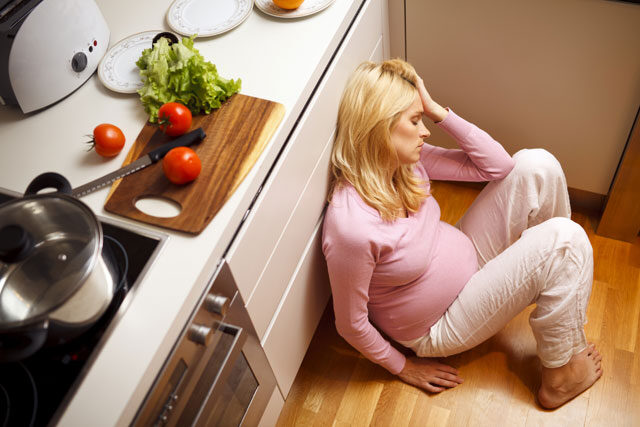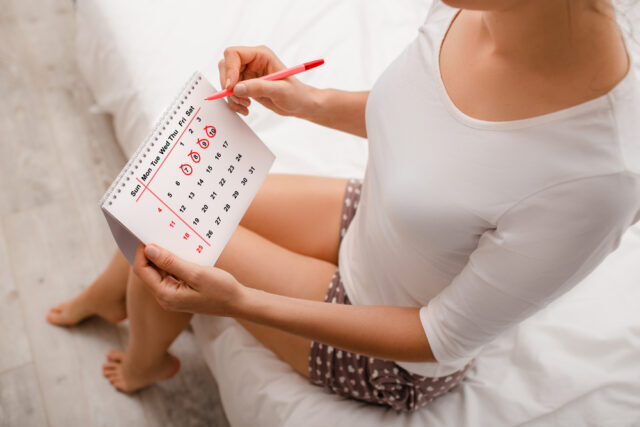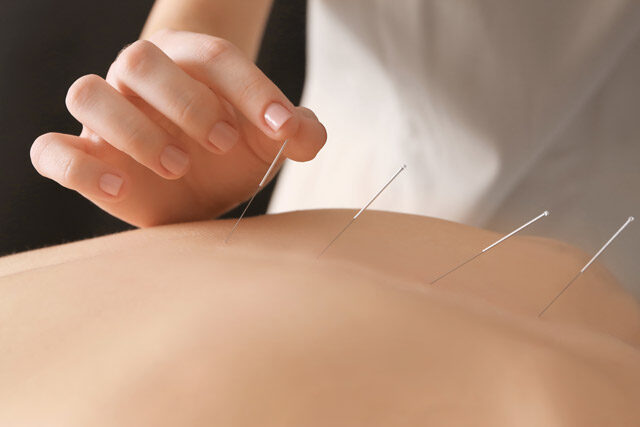Signs Your Period is Coming Tomorrow – Three-fourths of menstruating women claim they have one or more premenstrual symptoms about seven to fourteen days before their period is due. However, almost 90% of women will face PMS at some point in their lives. For most patients, these symptoms go mild but in approximately 5% of cases, they grow into premenstrual dysphoric disorder.
This article will be useful for all women, no matter if they do experience such a problem or not, as not only does it reveal the signs of the upcoming period but also explains how to reduce their manifestations and improve your quality of life during this time.
PMS: Things to Know
The cycle of every woman can be split into two parts: before and after ovulation. Premenstrual syndrome (PMS) comes in the second part of your menstrual cycle. This health condition is characterized by a variety of symptoms, which comprise both physical and psychological manifestations.
Women handle PMS symptoms differently. For some, they go almost unnoticed, while for others, this period may be tough. Missing their job or classes for several days leading to their menses is not rare for women with intense symptoms.
What Are the Symptoms of PMS?
While the cause of PMS is common for all women, the signs your period is coming tomorrow may vary significantly. You may have only one symptom but your sister or friend may get a whole bunch of them. Anyway, you’d better know about all the common signs of upcoming menses, and they are quite numerous, we must say:
- headaches;
- tender (sometimes painful) breasts;
- bloating;
- mood swings;
- muscle pain;
- food cravings;
- light abdominal cramps;
- slight weight gain;
- you may feel tired;
- gastrointestinal symptoms;
- sleepiness;
- you may have pimples on your face, back, or chest;
- tearfulness, irritability, and anxiety.
Another period symptom is related to your vaginal discharge. You will notice it becomes cloudy to white in color. At times, it may get yellowish. A change in color and consistency is caused by progesterone levels reaching their peak in your body. This symptom appears 3 to 5 days before your period.
The manifestations tend to get milder as soon as your period starts and disappear by day 4 of your new cycle. The only exception is menstrual cramps. They typically get severer during the first two days of menses.
What Causes PMS Signs
The precise cause of PMS still has to be found. However, some healthcare specialists believe these are the dropping amounts of estrogen and progesterone responsible for all the signs. There is no scientific proof of this theory, however.
Another thing that may influence your symptoms is the reduction of serotonin levels in your brain. This is believed to be the primary cause of the emotional challenges you may face during PMS.
Vitamin and nutrient deficiency is another factor that may add to the intensity of PMS symptoms you have.
Scientists managed to figure out the risk factors increasing your chances for PMS. What’s more, some of them affect the severity of its manifestations, as well. You may be more prone to premenstrual syndrome if you:
- older than 25 but younger than 45;
- you have depression running in the family;
- pregnancy in anamnesis.
Speaking about the factors affecting the possible severity of manifestations, they are more numerous and include:
- older teenage age;
- age older than 40;
- excessive stress levels;
- marital status;
- excessive body mass;
- depression.
Ways of Self-Treating PMS

Going to the doctor in the hope to get rid of PMS symptoms is not an option. You may be offered medical therapy only in the case your psychological symptoms are severe and interfere with your daily routine. Antidepressants, particularly selective serotonin reuptake inhibitors, are a typical and rather effective treatment for PMS and its more severe form.
Your healthcare provider may also suggest taking hormonal contraceptives to diminish the signs of PMS. However, studies failed to confirm the effectiveness of this method.
How can you help yourself during PMS?
- Taking analgesics can be effective for period cramps, headaches, backache, and muscle pain.
- If you don’t want to use pills, cold packs can be useful for soothing pain.
- Try to reduce your stress levels.
- Getting enough sleep is essential for supporting your mental health. It can help reduce increased nervousness, irritability, and aggression.
- Enrich your diet with fruit and vegetable to get a sufficient vitamin supply.
- Aerobic exercises can help increase your serotonin levels, thus positively influencing your psychological condition.
Signs Your Period is Coming Tomorrow – Final Words
Knowing the symptoms of your period coming soon, you may be better prepared for it. PMS may sometimes be not easy, but there are effective ways to deal with it. If you can’t manage the symptoms by yourself, you should set an appointment with your OB-GYN or GP to help you find the solution for the problem. Just remember that you are not alone, and there is always someone who can support, understand, and help you.




